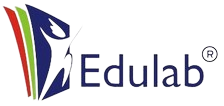Verification
Document Authentication: Verification in education involves the authentication of academic documents, such as transcripts, certificates, and degrees. Educational institutions, employers, and other relevant entities often require verification to ensure the legitimacy of the presented credentials.
Confirmation of Academic Records: Institutions use verification processes to confirm the accuracy of academic records, including grades, courses completed, and degrees earned. This helps in maintaining the integrity of educational information and ensuring that individuals meet the necessary criteria for admission or employment.
Prevention of Fraud: Verification plays a crucial role in preventing fraudulent activities related to academic qualifications. By confirming the authenticity of documents, educational institutions can mitigate the risk of individuals presenting false or misleading information, which could have implications for academic and professional opportunities.
Standardization and Global Recognition: Verification processes contribute to standardization in the evaluation of academic credentials, facilitating global recognition of qualifications. This is particularly important in the context of international education and employment, where individuals may present qualifications obtained from different educational systems.

